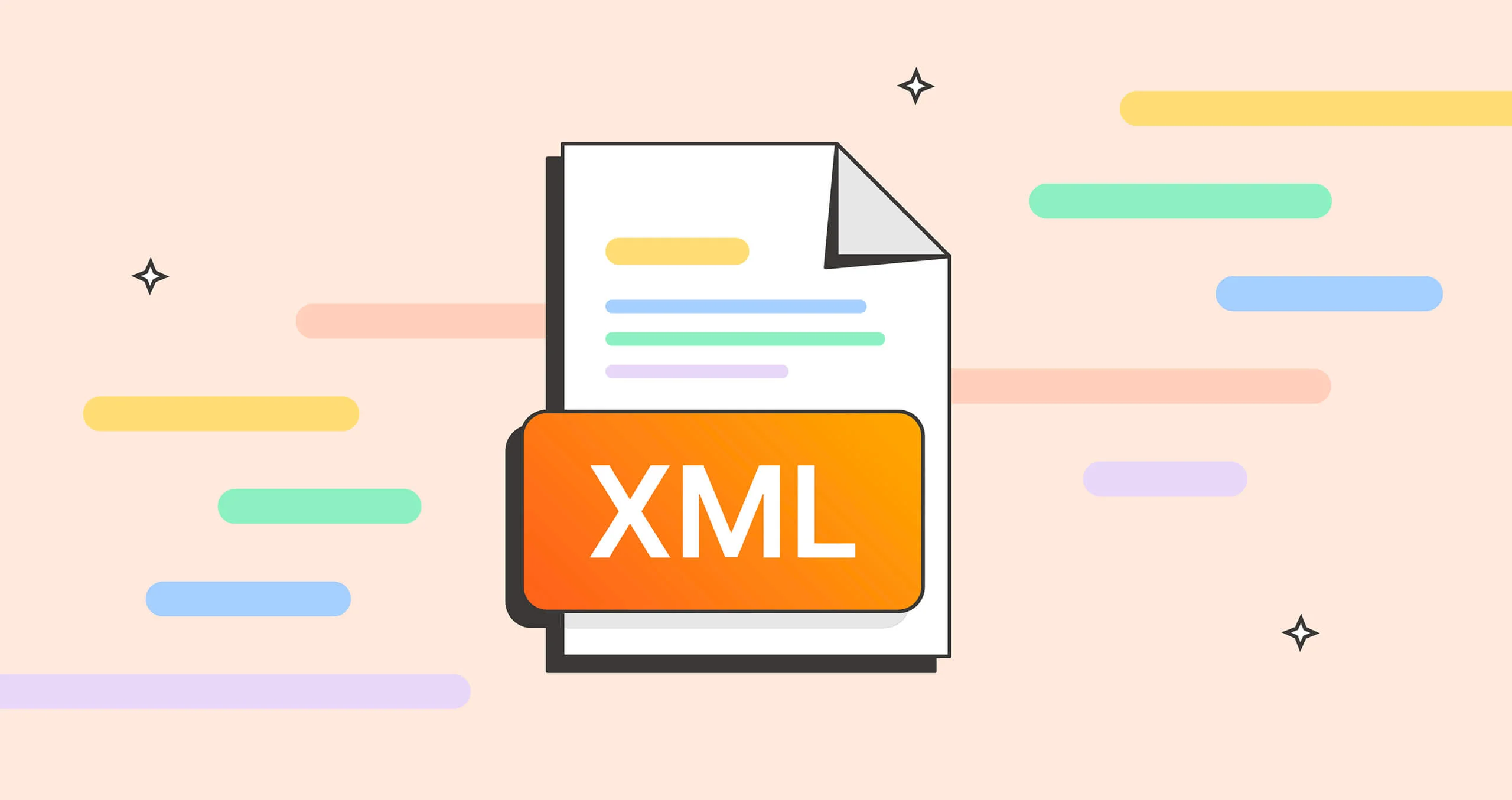顯示帶有圖像和媒體外殼的RSS提要項目
首先檢查RSS項的description字段中的內聯圖片,通過解析HTML或CDATA內容提取img標籤作為主要圖像來源;2. 其次查找Media RSS擴展中的media:thumbnail元素,優先使用其提供的縮略圖用於預覽展示;3. 若前兩者不存在,則檢查enclosure標籤的MIME類型是否為圖像(如image/jpeg),將其作為備選封面圖;4. 對於音頻或視頻媒體,根據enclosure的MIME類型(如audio/mpeg或video/mp4)渲染對應的音頻或視頻播放器;5. 實際實現時應使用可靠的RSS解析庫,按優先級順序處理多種圖像源,同時對HTML內容進行安全過濾,支持圖片懶加載並緩存外部資源以提升性能,最終通過綜合處理多種數據源實現豐富且安全的RSS內容展示。

Displaying RSS feed items with images and media enclosures can greatly enhance user experience, especially when the feed includes rich content like podcasts, videos, or photo-heavy blog posts. Here's how to properly handle and display both images and media enclosures in RSS feeds.

Understanding RSS Feed Structure
RSS (Really Simple Syndication) feeds often include more than just titles and text. They can contain:
-
<description></description>– HTML or plain text with content, sometimes including embedded images. -
<enclosure></enclosure>– Used for media files (eg, MP3s for podcasts, videos), with attributes likeurl,length, andtype. -
<content></content>or<thumbnail></thumbnail>– Part of the Media RSS (MRSS) extension, used to include images, videos, and metadata. - Images in content – Inline images within the
<description></description>field using<img src="/static/imghw/default1.png" data-src="顯示帶有圖像和媒體外殼的RSS提要項目" class="lazy" alt="顯示帶有圖像和媒體外殼的RSS提要項目" >.
To display images and media correctly, you need to parse all these elements.

Extracting and Displaying Images
1. Check for Inline Images in Description
Many feeds embed images directly in the item's description:
<description>
<![CDATA[
<p>Check out this photo:</p>
<img src="/static/imghw/default1.png" data-src="https://example.com/photo.jpg" class="lazy" alt="A scenic view" />
]]>
</description>- Parse the description field (especially if wrapped in
CDATA). - Use a DOM parser or regex (carefully) to extract
<img src="/static/imghw/default1.png" data-src="https://example.com/episode.mp3" class="lazy" alt="顯示帶有圖像和媒體外殼的RSS提要項目" >tags. - Display the first image or all images, depending on your layout.
2. Look for Media Thumbnails
If the feed uses Media RSS:
<media:thumbnail url="https://example.com/thumb.jpg" width="120" style="max-width:90%" /> <media:content url="https://example.com/video.mp4" type="video/mp4" />
- Parse the
media:thumbnailfor preview images. - These are often smaller and optimized for display.
3. Fallback to Enclosure Images
Some feeds use <enclosure> for images:
<enclosure url="https://example.com/image.jpg" type="image/jpeg" length="123456" />
- Check the MIME type (
image/*) to determine if it's an image. - Use it as a featured image if no other image is available.
Handling Media Enclosures (Audio/Video)
The <enclosure> tag is key for podcast episodes or video content:
<enclosure url="https://example.com/episode.mp3" length="4567890" type="audio/mpeg" />
Best practices:
- Check the MIME type to determine media type:
-
audio/mpeg,audio/mp4→ audio player -
video/mp4,video/webm→ video player
-
- Display a play button or download link next to the item.
- Embed a media player if your site supports it:
<audio controls> <source type="audio/mpeg"> Your browser does not support the audio element. </audio>
Practical Implementation Tips
When building an RSS reader or feed display:
- Use a robust parser like
feedparser(Python),SimplePie(PHP), or JavaScript libraries likerss-parser. - Prioritize image sources in this order:
-
media:thumbnail(for previews) - Inline images from
<description> - Image enclosures (
type="image/*") - Fallback to site logo or placeholder
-
- Sanitize HTML from
<description>to prevent XSS. - Cache images to improve performance and reduce load on external servers.
- Support lazy loading for images and media:
<img src="/static/imghw/default1.png" data-src="photo.jpg" class="lazy" loading="lazy" alt="顯示帶有圖像和媒體外殼的RSS提要項目" />
Example: Display Logic in Code (Pseudocode)
for each feedItem in rssFeed.items:
title = item.title
description = stripHtml(item.description) // or keep HTML for rendering
// Try to get an image
image =
item.mediaThumbnail?.url ||
extractFirstImage(item.description) ||
(item.enclosure if item.enclosure.isImage) ||
null
// Handle media enclosure
if item.enclosure and item.enclosure.isAudio:
renderAudioPlayer(item.enclosure.url)
else if item.enclosure and item.enclosure.isVideo:
renderVideoPlayer(item.enclosure.url)
displayItem(title, description, image, mediaPlayer)Basically, showing images and media from RSS feeds comes down to checking multiple possible sources and handling them appropriately. It's not always straightforward—feeds vary widely—but by combining enclosure checks, media extensions, and HTML parsing, you can build a robust and visually engaging feed display.
以上是顯示帶有圖像和媒體外殼的RSS提要項目的詳細內容。更多資訊請關注PHP中文網其他相關文章!

熱AI工具

Undress AI Tool
免費脫衣圖片

Undresser.AI Undress
人工智慧驅動的應用程序,用於創建逼真的裸體照片

AI Clothes Remover
用於從照片中去除衣服的線上人工智慧工具。

Clothoff.io
AI脫衣器

Video Face Swap
使用我們完全免費的人工智慧換臉工具,輕鬆在任何影片中換臉!

熱門文章

熱工具

記事本++7.3.1
好用且免費的程式碼編輯器

SublimeText3漢化版
中文版,非常好用

禪工作室 13.0.1
強大的PHP整合開發環境

Dreamweaver CS6
視覺化網頁開發工具

SublimeText3 Mac版
神級程式碼編輯軟體(SublimeText3)
 使用iTunes標籤創建播客RSS提要的完整指南
Aug 11, 2025 pm 02:09 PM
使用iTunes標籤創建播客RSS提要的完整指南
Aug 11, 2025 pm 02:09 PM
創建包含正確iTunes標籤的播客RSSfeed是確保節目可在ApplePodcasts等平台被發現和正確顯示的關鍵;2.RSSfeed必須遵循RSS2.0規範並包含特定的iTunes標籤,如、、、和;3.必須在標籤中添加xmlns:itunes命名空間,並在頻道級別和每集級別正確設置元數據;4.使用Buzzsprout、Captivate、Podbean等託管平台可自動生成合規的feed,避免手動編寫XML出錯;5.提交前需使用驗證工具檢查feed有效性,確保音頻文件為MP3格式、使用絕對UR
 使用XSLT參數創建動態轉換
Aug 17, 2025 am 09:16 AM
使用XSLT參數創建動態轉換
Aug 17, 2025 am 09:16 AM
XSLT參數是通過外部傳遞值來實現動態轉換的關鍵機制,1.使用聲明參數並可設置默認值;2.從應用程序代碼(如C#)通過XsltArgumentList等接口傳入實際值;3.在模板中通過$paramName引用參數控制條件處理、本地化、數據過濾或輸出格式;4.最佳實踐包括使用有意義的名稱、提供默認值、分組相關參數並進行值驗證。合理使用參數可使XSLT樣式表具備高複用性和可維護性,相同樣式表能根據不同輸入產生多樣化輸出結果。
 顯示帶有圖像和媒體外殼的RSS提要項目
Aug 01, 2025 am 12:33 AM
顯示帶有圖像和媒體外殼的RSS提要項目
Aug 01, 2025 am 12:33 AM
首先檢查RSS項的description字段中的內聯圖片,通過解析HTML或CDATA內容提取img標籤作為主要圖像來源;2.其次查找MediaRSS擴展中的media:thumbnail元素,優先使用其提供的縮略圖用於預覽展示;3.若前兩者不存在,則檢查enclosure標籤的MIME類型是否為圖像(如image/jpeg),將其作為備選封面圖;4.對於音頻或視頻媒體,根據enclosure的MIME類型(如audio/mpeg或video/mp4)渲染對應的音頻或視頻播放器;5.實際實現時應
 .NET中的XML序列化和避免
Aug 13, 2025 am 05:10 AM
.NET中的XML序列化和避免
Aug 13, 2025 am 05:10 AM
XMLserializationin.NETconvertsobjectstoXMLformatusingXmlSerializer,anddeserializationreconstructsobjectsfromXML.1.UseXmlSerializertoserializepublicpropertiesandfields,asshownwiththePersonclass.2.DeserializebycallingDeserializemethodonXmlSerializer,pa
 XML數據與Java中的蓖麻結合
Aug 15, 2025 am 03:43 AM
XML數據與Java中的蓖麻結合
Aug 15, 2025 am 03:43 AM
CastorenablesXML-to-Javaobjectmappingviadefaultconventionsorexplicitmappingfiles;1)DefineJavaclasseswithgetters/setters;2)UseUnmarshallertoconvertXMLtoobjects;3)UseMarshallertoserializeobjectsbacktoXML;4)Forcomplexcases,configurefieldmappingsinmappin
 評論和記錄XML文件的最佳實踐
Aug 17, 2025 am 01:52 AM
評論和記錄XML文件的最佳實踐
Aug 17, 2025 am 01:52 AM
明確答案是:XML文件註釋與文檔的最佳實踐包括使用有上下文的註釋、結合外部文檔、保持註釋更新、避免過度註釋、保持註釋風格一致、為配置值添加單位和範圍說明、必要時使用CDATA。 1.註釋應解釋結構背後的原因而非僅僅描述內容,例如說明業務規則或技術限制;2.結合XSD、DTD或README等外部文檔說明整體結構,並在根元素中引用schema以支持驗證;3.每次修改XML時同步更新註釋,避免遺留過時信息;4.僅在非顯而易見處添加註釋,避免對明顯元素重複說明;5.團隊統一註釋位置、格式和關鍵詞(如TOD
 RSS feed的解剖學:基本標籤解釋了
Aug 07, 2025 am 12:46 AM
RSS feed的解剖學:基本標籤解釋了
Aug 07, 2025 am 12:46 AM
anrssfeedStructuredsistArdizedxmlTagStoDEliverContentUpDatesReliably.1.ThetAgisTherOtContainer,定義(例如,“ 2.0”)。 2。 InSideIt,inSideIt,thetagactsassassassassasthemainhub,holdingMetAdataTaTaAtaNAndAtaTaAtaNAndAtaTaTaAnAndContent.3.CoremetAdeAncluly.3.CoremetAdAtainCludAncludAncludAncludAncludAck,,, ,, ,, ,,.
 在JavaScript中獲取和解析RSS feed
Aug 04, 2025 am 03:08 AM
在JavaScript中獲取和解析RSS feed
Aug 04, 2025 am 03:08 AM
要解決JavaScript中獲取和解析RSSfeed的問題,必須使用代理繞過CORS限制並用DOMParser解析XML。 1.由於瀏覽器的跨源策略,無法直接通過fetch獲取無CORS頭的RSSfeed;2.解決方案是使用CORS代理,測試時可用公共代理如allorigins.win;3.生產環境應使用自建後端代理轉發請求;4.獲取XML文本後,使用DOMParser將其解析為XML文檔對象;5.利用querySelectorAll和querySelector提取item中的標題、鏈接、發佈時間







